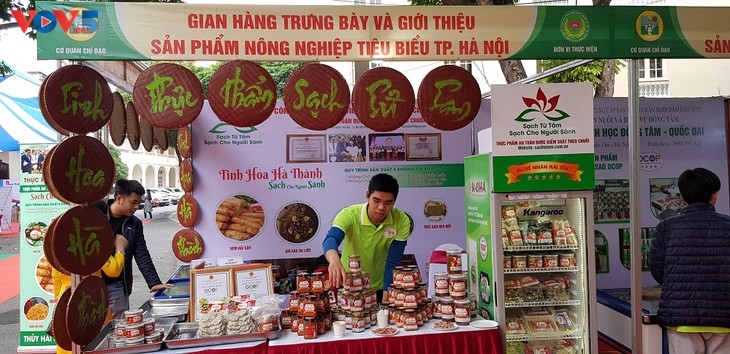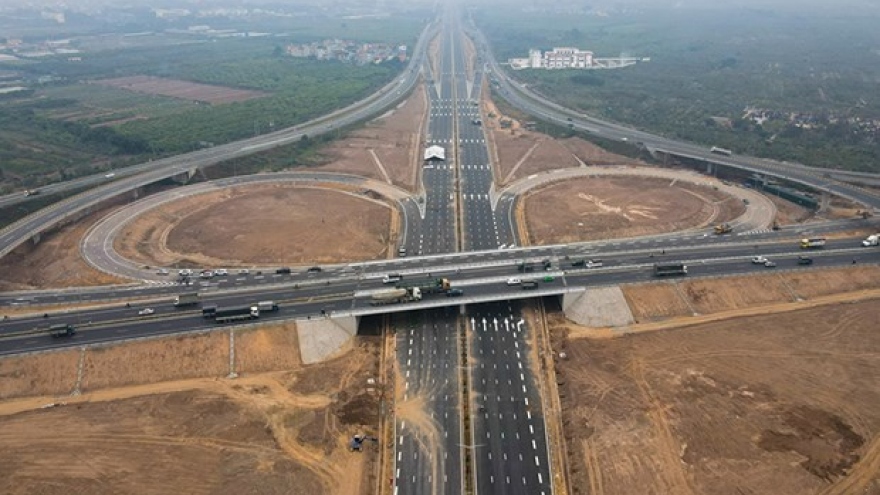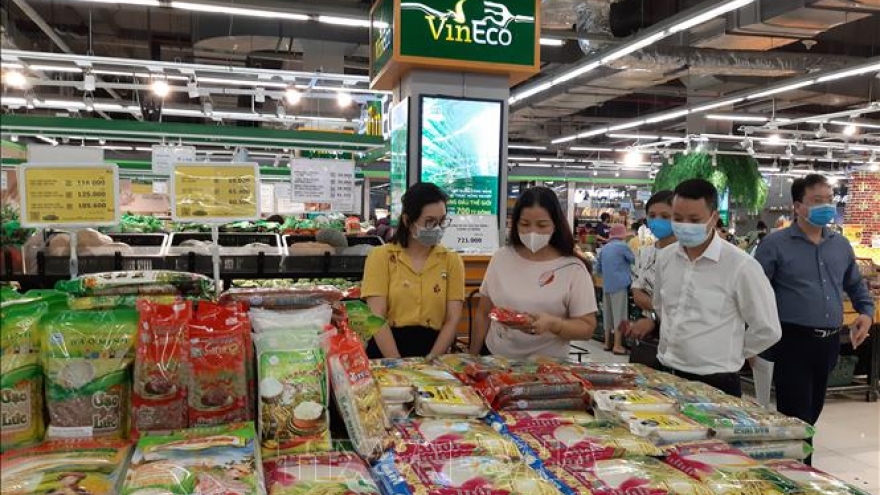Hanoi takes the lead in building agricultural production chains
VOV.VN - Since 2016 the Hanoi Agricultural Development Center has been developing supply chains for safe agricultural products.

In 2019 it initiated a 2-year agricultural development plan. Hanoi's agricultural sector now leads the nation in building agricultural production chains.
Hanoi’s supply chain and agricultural development projects include 4 sub-programs: producing high-quality Japonica rice, developing high-quality beef cattle, producing Tan Lac red pomelos and several other specialty pomelo varieties, and producing and supplying chains of animal feed products.
To date, the capital has formed three value chains of Japonica rice, an organic rice with higher yield and quality than other types. In several of Hanoi’s outlying districts, Japonica rice cultivation has expanded dramatically.
By the end of last year, Hanoi had set up 15 zones on 500 ha to grow Tan Lac red pomelos and other specialty pomelo varieties.
Eleven production and supply chains for safe meat products and other kinds of food products have been completed.
The supply chains have supplied the Hanoi market 14 tons of pork, 6.5 tons of poultry meat, 105 tons of milk, and a ton of beef per day.
Nguyen Huy Dang, Deputy Director of the Hanoi Department of Agriculture and Rural Development, said, “Last year, production-sale chains were set up - Doan Ket Agricultural Service Cooperative, Dong Phu Organic Agricultural Cooperative, and Green Path Vietnam Company. We also developed two collective brands for Japonica organic rice - “Nam Phuong Tien Japonica rice” and “My Thanh Japonica rice.”
Dang added, “In the two years since 2019, 123 ha of pomelos have been planted in 6 districts. Hanoi has enhanced links between the government, farmers, scientists, businesses, banks, and distributors. From now until 2025, with an orientation to 2030, Hanoi will promulgate a resolution on agricultural development in line with the new rural development program and specific policies for high-tech agricultural development.”
These projects help raise farmers’ awareness about reducing the use of chemical fertilizers and changing old farming habits to balance the ecosystem and protect land and water resources. Phúc Thọ district is an outstanding role model in deploying chain projects.
Nguyen Dinh Son, Deputy Chairman of the district People’s Committee, said, “Phuc Tho has been planned into a green belt agricultural district of Hanoi. It has formed large-scale specialized farming areas and applied technology to production. Eight agricultural production and sales chains have been set up with products admitted to the municipal agricultural product traceability system."
"Phuc Tho has converted 1,600 ha of crops, increasing profits 2 to 10 times. Growing lilies in Tam Thuan commune has allowed farmers to earn 20 times more than they did growing rice,” said Son.
Last year, agriculture once again became the backbone of the national economy, due to COVID-19’s effects in other countries. Agriculture grew 2.68% and earned more than US$41 billion from exports, much of this thanks to Hanoi’s agriculture sector. Hanoi’s four farm produce chain projects have established a system of distribution and convenience stores whose outputs have increased more than 10%.
The capital city has become a supplier of breed stock and new technology to other localities.
According to Deputy Minister of Agriculture and Rural Development Phung Duc Tien, “Hanoi has built four production chains, provided training, breed stock, seedlings, rice varieties, processing, and mechanization, and all products produced satisfy quality and safety standards."
Tien called on Hanoi "to keep developing the four chains to expand the scale and quality. Hanoi has closely coordinated with 21 other localities to modernize its agriculture.”
The Hanoi Department of Agriculture and Rural Development will continue producing specialized goods and doing high-tech processing of agricultural products.



